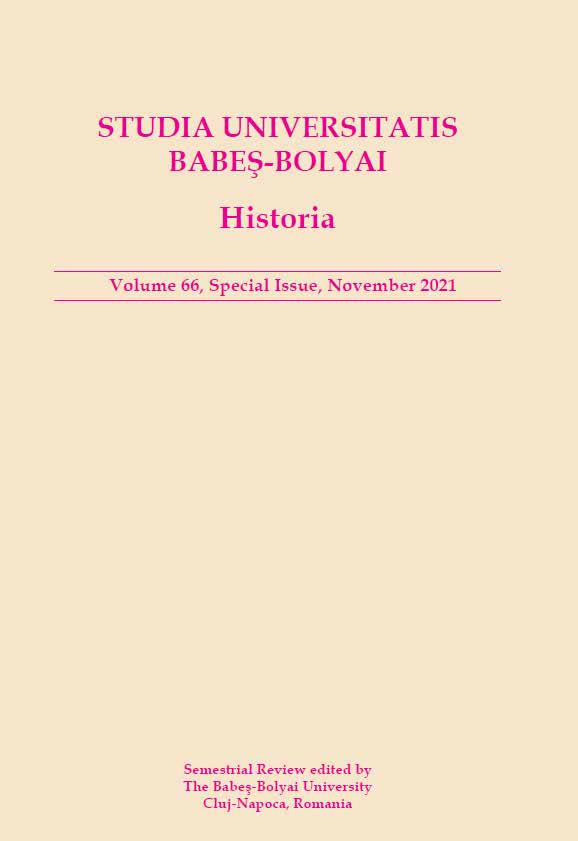MOSCOW CONCEPTUALISM THROUGH COLLECTIVE AND PRIVATE MEMORY. THE ARCHIVE AS AN ARTISTIC SELF-HISTORICISING PRACTICE IN VADIM ZAKHAROV
MOSCOW CONCEPTUALISM THROUGH COLLECTIVE AND PRIVATE MEMORY. THE ARCHIVE AS AN ARTISTIC SELF-HISTORICISING PRACTICE IN VADIM ZAKHAROV
Author(s): Alessandra FranetovichSubject(s): Cultural history
Published by: Studia Universitatis Babes-Bolyai
Keywords: Vadim Zakharov; Moscow Conceptualism; Russian Contemporary Art; Contemporary Art; Global Art History; Archival fever;
Summary/Abstract: In an era characterised by the growing tension between local and global, the multiple activities acted by the artist Vadim Zakharov offer an important case study to investigate critically the relationship between artists and the art institutions at the time of the Global Art History. Artist, archivist, collector and editor in the frame of Moscow Conceptualism, since the end of the 1970s up to today, Zakharov embodies the figure of the “artist as institution” in the attempt to reach his artistic autonomy. This text introduces to his expansion of the archival attitude typical of Moscow conceptualism, a Soviet unofficial art movement developed in the marginal, underground, and self-referential context in the capital of USSR since the 1970s. Due to its transnationality, Zakharov’s story gives the opportunity to trace parallels, comparisons and differences to what happened next, when he moved in Germany in 1989, after the fall of USSR, and with the appearance of the new labels of “post-Soviet” and “Russian contemporary art”. Within this socio-historical framework, he joined a more cosmopolitan artistic scene, enlarging his archival practices with the aim to self-institutionalize and self-historicize his own artistic practices and the circle of Moscow Conceptualism in an international scene.
Journal: Studia Universitatis Babes-Bolyai - Historia
- Issue Year: 66/2021
- Issue No: Sp.Issue
- Page Range: 211-232
- Page Count: 22
- Language: English

